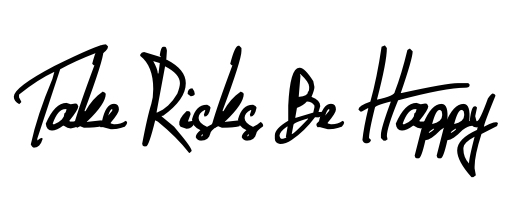Being a freelance writer is great. But it’s a career that doesn’t always lead to excitement. Oftentimes, you’re working from a coffee shop, and things are pretty relaxed. But sometimes things don’t end up normal—and shit gets crazy.
Like the time I lost $2,000+ writing for a scammer.
Here’s what went down:
The beginning
In 2013 I was looking for writing jobs and put a profile up on freelancer website. I was worried about pricing myself too cheaply, so I decided I would put up a rate of $50 an hour. At the time, it seemed insane. I had just been earning $10 an hour as a waiter at weddings, so the idea of making $50 an hour felt like something I didn’t deserve. ($50 an hour is actually not a crazy high rate, I was just in the wrong mindset.) But anyway I decided I had to put up what I thought was a high price at the beginning and I could always negotiate downwards.
So I put up $50 an hour…
…and then nothing happened.
I totally forgot I had even posted my profile on that site, until months later I got an email saying someone wanted to hire me. I was happy about it. After all, it could be a big step forward—and it seemed like so much money.
I got the phone number of the client and set up a call. It turned out he was in the finance industry on the east coast and needed someone to ghostwrite articles or whitepapers. He was very nice, very charismatic, very charming. I was really excited about the job.
And then nothing happened.

The rush editorial
It was a month or two until I heard back from him. He asked if I could ghostwrite an editorial by tomorrow. He called me at 5 pm. So suddenly, I was being asked to write a professional-grade essay about a topic I was not familiar with, by a client I had never worked for, in only a few hours.
This shows one of the problems with billing at hourly rates. Even If I worked nonstop from 6pm to 6am, that would only be 12 hours of work. At $50 an hour, (with no sleep) I would have only earned $600, which is totally not enough
But anyway I was new and I wanted the job and the money so I took it. I worked like crazy until midnight and got it done. It was 6 hours of work, but it was also six hours of really, really intense work.
There were a couple crazy things about this. The first crazy thing about it is that I should’ve been paid more because it was a rush job in a very technical subject. I should’ve charged a rush fee, or, better yet, not have billed per hour at all.
The second crazy thing about it is that I AFRAID of asking for what I was really due. I had worked hard for six hours at a rate of $50 an hour, and I almost lied about the amount of hours it took me, so I could get paid less, because I was worried the client would think that $300 was too much money.
I was stuck in the mindset of me when I had been a waiter. $300 was 30 hours of work—almost four full workdays. I knew it rationally, but I didn’t emotionally realize that I was doing work that should be paid much higher, and that I was working for some sort of finance millionaire, and to him $300 was nothing, and that he probably would’ve paid me $1,000, or at least $800.
The rush of getting paid
Anyway, so I got a $300 check. And it felt like a million bucks since that was my first freelance client and the idea that I could write something in an evening—even if it was really hard—and then wake up the next morning having earned $300 was just insane to me. I didn’t have to ask people what type of food they wanted, carry trays of food scraps, wash my hands to get gunk off them, stand around all the time, worry about getting orders wrong, and all the other things that go with being wait staff. I was not rich and I was still working for other people. But I was doing it from home. And that feeling was so powerful and really reaffirming. Even though it all went to hell with that client eventually, I still am happy I felt that way.
those times where it is a little bit hard, but you’re not totally overwhelmed and you work hard to get it done—those are the times you truly grow.
And things continued to get better. The person I worked for said he was impressed with my work and we moved onto a new project. For this one I wrote a long whitepaper about a specific company and why it would likely lose value. It was actually pretty interesting and the feeling of freedom was great.
I remember waking up, working from 8-12, then having lunch with my girlfriend at the time. The concept that I had just earned $200 was mind blowing. It was the same thing with the ghostwritten essay. That was two and a half days of work at my old job. And while it was definitely not easy, I learned a lot and, honestly, looking back, those were great times. Because those times where it is a little bit hard, but you’re not totally overwhelmed and you work hard to get it done—those are the times you truly grow.
The hidden warning signs
And for this second project I did get paid. I sent in a bill, then a couple weeks later, just like with the first project, I got a check in the mail. And so by that point I didn’t worry about it too much.
Plus, I had worked for a major client on a big book project, a very famous name, and they were so slow paying. They were months late, and even forgot about one of my payments. So, compared to this very reputable name, they were actually fast. So I didn’t worry at all. But I should have because there were warning signs flashing everywhere.
Instead of treating myself as an equal in the relationship, I worried more about he felt than about protecting myself in addition to doing good work. Big mistake.
We had never signed a contract. I was receiving checks in the mail pretty slowly, which meant I could end up doing weeks of work before I knew if I was really going to get paid or not. And, as we talked about a bit earlier, I was billing at a flat hourly rate even for projects where it meant I was essentially getting ripped off.

And we never had great communication. He was chatty when he wanted to be and silent other times. But I had gotten paid, eventually, so I just kept working. But then I stopped hearing from the client. And even though that was not normal, I kept working because I was supposed to. I figured he was busy and, besides, when he eventually contacted me again, if I didn’t have any progress he would probably be mad. That was another problem. Instead of treating myself as an equal in the relationship, I worried more about he felt than about protecting myself in addition to doing good work. Big mistake.
After not hearing from him for a few weeks, I googled him. And that’s when I found out the FBI had raided his office because he was being investigated for financial fraud. Obviously, this was bad news for me and everyone else who had worked for him. The realization that I would likely never get what I was owed was a very bad feeling indeed.
And that was also a very valuable lesson. I had been operating without a written contract and was actually in a very vulnerable position—almost certainly by design. Because someone like this, who had perpetrated a scheme designed to not pay investors and people who worked for him would prefer to hire people that way. Of course, he did have real employees with real contracts who were also ripped off, but the fact that I was paid slowly and was operating without a contract should’ve been a major warning sign for me. But I failed to see those warning signs.
So what did I do next? Sue him? Well, I thought about it but it turns out it was not that easy to do in practice.
Lawsuits are difficult
Of course I didn’t give up immediately. I looked into filing a lawsuit. But it was expensive, and the amount I was owed, around $2,000, would quickly be eaten up by legal fees. I could file in small claims court—where I wouldn’t need a lawyer—but even there I would have had to pay for someone to serve him with legal papers. He was on the east coast. I was in California. It would be a pain—if I could serve him at all. And then there was another problem. Was I working for him personally or the company? Since I didn’t have a written contract, I wasn’t sure. The point is, it was a big legal mess and it just wasn’t worth it. I might have pursued the matter on principle if he somehow got off, but since he ended up being sentenced to about a decade in prison, I was able to write the debt as emotionally paid off.
Lessons learned
While this situation hurt a lot, both financially and emotionally, I am actually relatively glad it happened because it encouraged me to stand up for myself in freelance negotiations much more than I would have otherwise. And it taught me some valuable lessons, like:
The importance of getting a written contract.
If you can get something in writing that will make things much easier. And reputable clients will be happy to sign a contract, it’s only the shady ones who won’t want to do it. You should NEVER be embarrassed about signing a contract, because, again, only scammers will be afraid of signing one. That said, there are plenty of shitty contracts out there, so you will want to avoid those like the plague. Don’t just sign whatever a client puts in front of you, negotiate and be willing to walk away from a bad deal.
See if you can be paid in advance.
After this client I actually broke my contract rules a little bit—but only for a client who agreed to pay me for my first post in advance. This way, I could determine if they were serious about having a working relationship with me. That does not entirely protect you from fraud, but it goes a long way.
Rethink how much you should be paid
I was charging $50 an hour, which is fine, but it really screwed me over when I had that rush project. I was too new and naïve and didn’t realize that I should have charged a rush fee, and that charging by the hour might not have even made sense at all. Doing a flat-fee or something per-word would’ve made a lot more sense in this case.
Good clients operate by the books.
The willingness of this client to operate without a contract, pay slowly, and pay by check, were all warning signs. Moreover, I was foolish enough to go along with it. Remember, good clients will be fine operating by the book. In fact, legitimate organizations generally require you to sign a contract before you can get started for them.
Have you been scammed? Got a crazy story yourself? Let me know in the comments.






